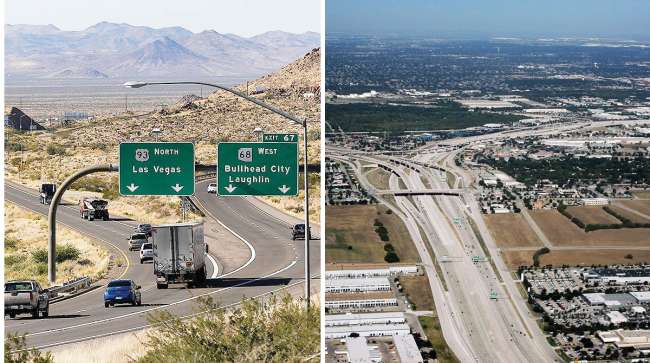Staff Reporter
Arizona, Wisconsin Earn 'C' Grades on ASCE Report Cards

[Stay on top of transportation news: Get TTNews in your inbox.]
The American Society of Civil Engineers infrastructure report cards for Wisconsin and Arizona reflected mediocre cumulative grades.
Wisconsin’s overall C grade, issued Sept. 15, stemmed from an evaluation of more than a dozen categories: aviation, bridges, dams, drinking water, energy, hazardous waste, inland waterways, ports, roads, solid waste, stormwater, transit and wastewater.
Arizona also received a C on its report card, which was issued Sept. 16 and covered nine infrastructure categories: aviation, bridges, dams, drinking water, levees, rail, roads, transit and wastewater.

What are fleets doing to help attract the best possible diesel technicians to join the changing workforce environment? Host Michael Freeze speaks with Ken Boyer, dean of the Auto/Diesel Institute at Baker College, and Ralph Romero, vice president of talent management at U.S. Xpress. Hear a snippet, above, and get the full program by going to RoadSigns.TTNews.com.
Events to unveil both report cards were virtual due to coronavirus-related safety concerns. In each case, the events normally would have convened at a public location such as the capitol, according to the presenters.
Roads performed poorly in Wisconsin and Arizona, earning a D+ in both states.
Ken Mika, ASCE Wisconsin section president and report card co-chair, said deficient roads cost Wisconsin drivers $6 billion per year. This figure represents costs associated with wear and tear on vehicles, wasted fuel from sitting in congestion and the overall cost of crashes on roadways. Congestion is a costly issue in some of Wisconsin’s larger metropolitan centers. According to ASCE’s report, congestion costs a driver $985 annually in Madison and $1,067 annually in Milwaukee.
ASCE Wisconsin Infrastructure Report Card Brochure by Transport Topics on Scribd
Jose Aguilar, Arizona section vice president and chair of the report card, said one challenge is his state’s rapidly growing population. He said roads have not received the same level of attention as airports (aviation earned a B on the report card).
“Our roads are lagging behind,” Aguilar said. “We really need as a state to be able to fund our roads. In five years, there hasn’t really been a huge impact on making sure our roads are prepared for the future.”
ASCE Arizona Infrastructure Report Card Brochure by Transport Topics on Scribd
Both report cards recommend increased investment to help offset infrastructure concerns. Aguilar said Arizona’s fuel tax rate (18 cents per gallon for gasoline and 26 cents for diesel used in “use class motor vehicles”) hasn’t been increased since 1991.
Ed Rendell, former Pennsylvania governor and co-chair of the Building America’s Future Educational Fund, said infrastructure needs to expand to keep pace with a growing population. Rendell appeared in a recorded conversation during Arizona’s virtual event. Building America’s Future is a bipartisan group of elected officials who advocate for investment in infrastructure and educate the public on infrastructure-related policy matters.
“We should make sure taxpayer dollars are spent well [and] targeted well,” Rendell said. “The federal government and the states should both partner.”
The presenters emphasized how solid infrastructure contributes to a healthy economy. Mika said that roads, ports and inland waterways are necessary to facilitate the movement of goods across Wisconsin. He said the ports of Wisconsin support about 10,000 jobs and are important for moving raw materials, metals, coal, fertilizer, limestone, wind turbine parts and wood.
“Our infrastructure drives economic growth,” said Jennifer Schaff, Wisconsin report card co-chair. “It creates jobs, keeps the heat running during our cold winters and protects us from severe weather events.”
Want more news? Listen to today's daily briefing:
Subscribe: Apple Podcasts | Spotify | Amazon Alexa | Google Assistant | More

